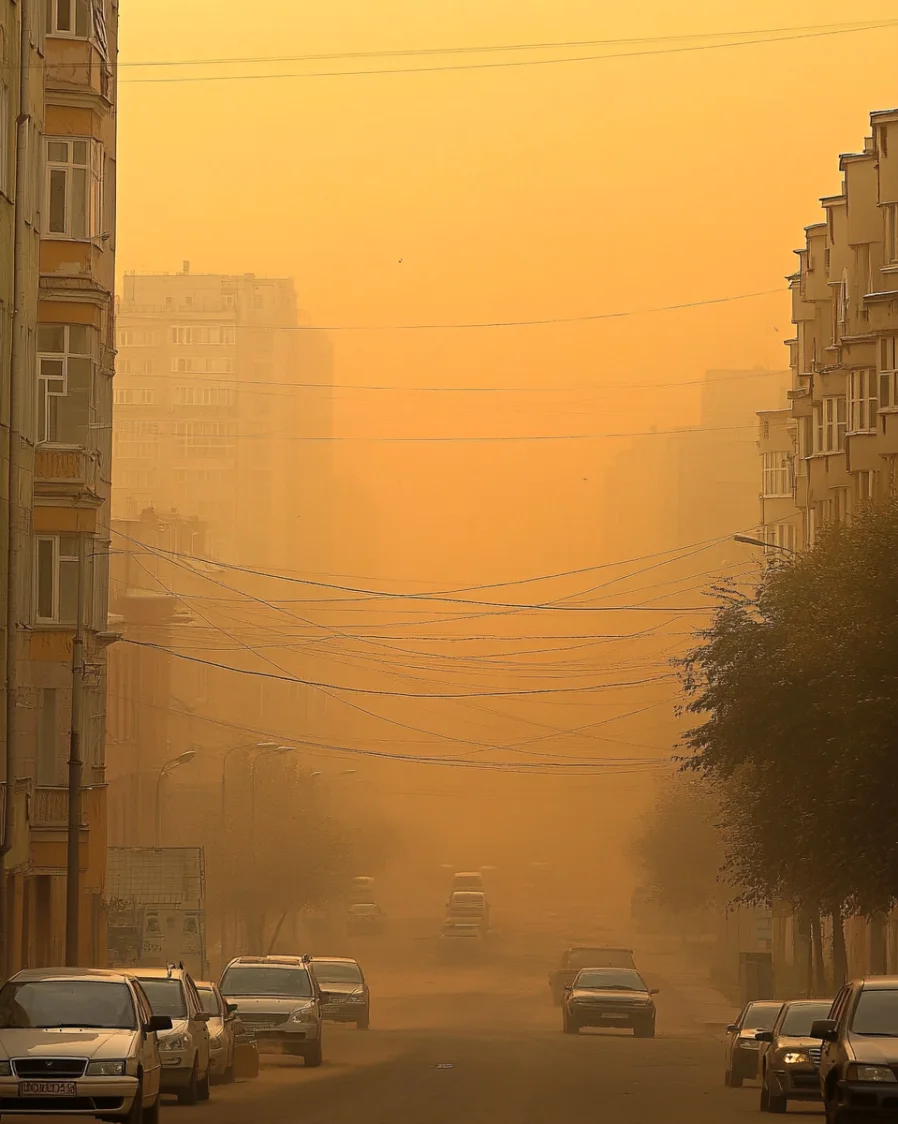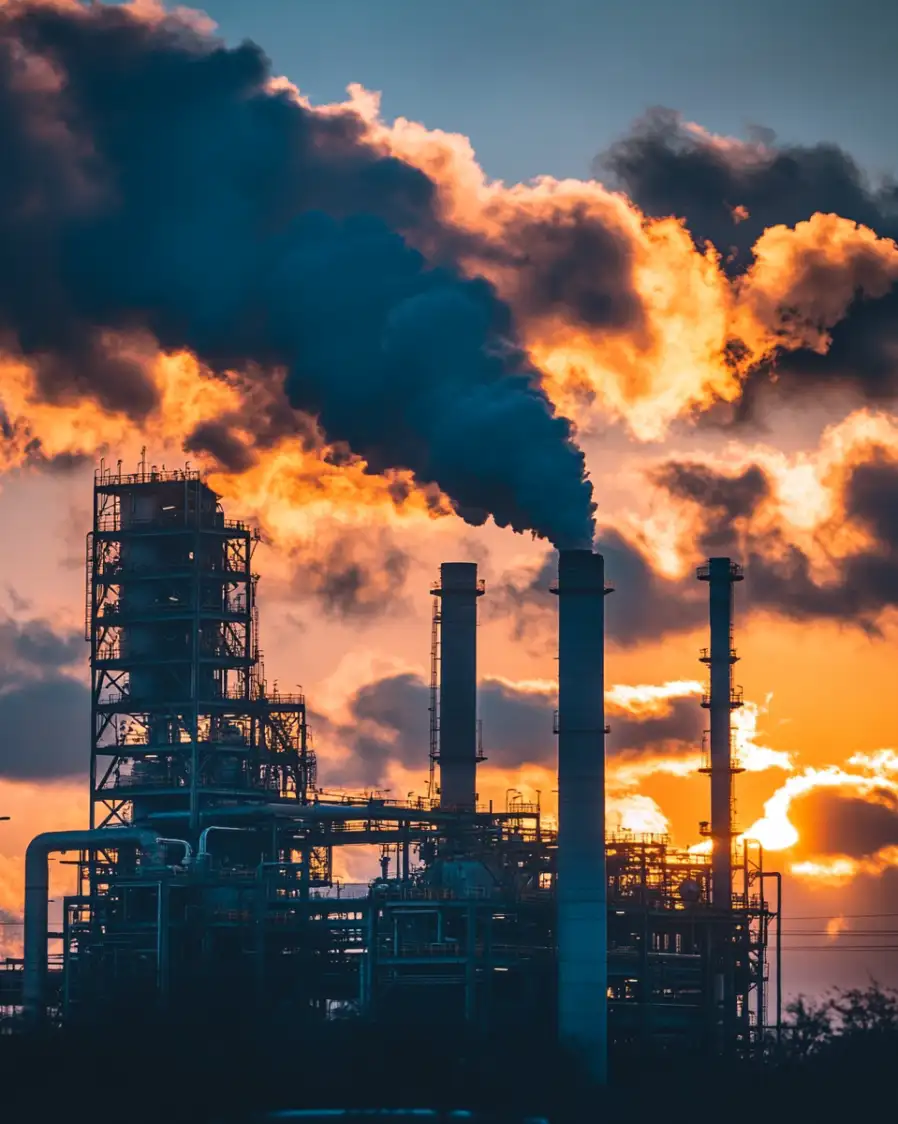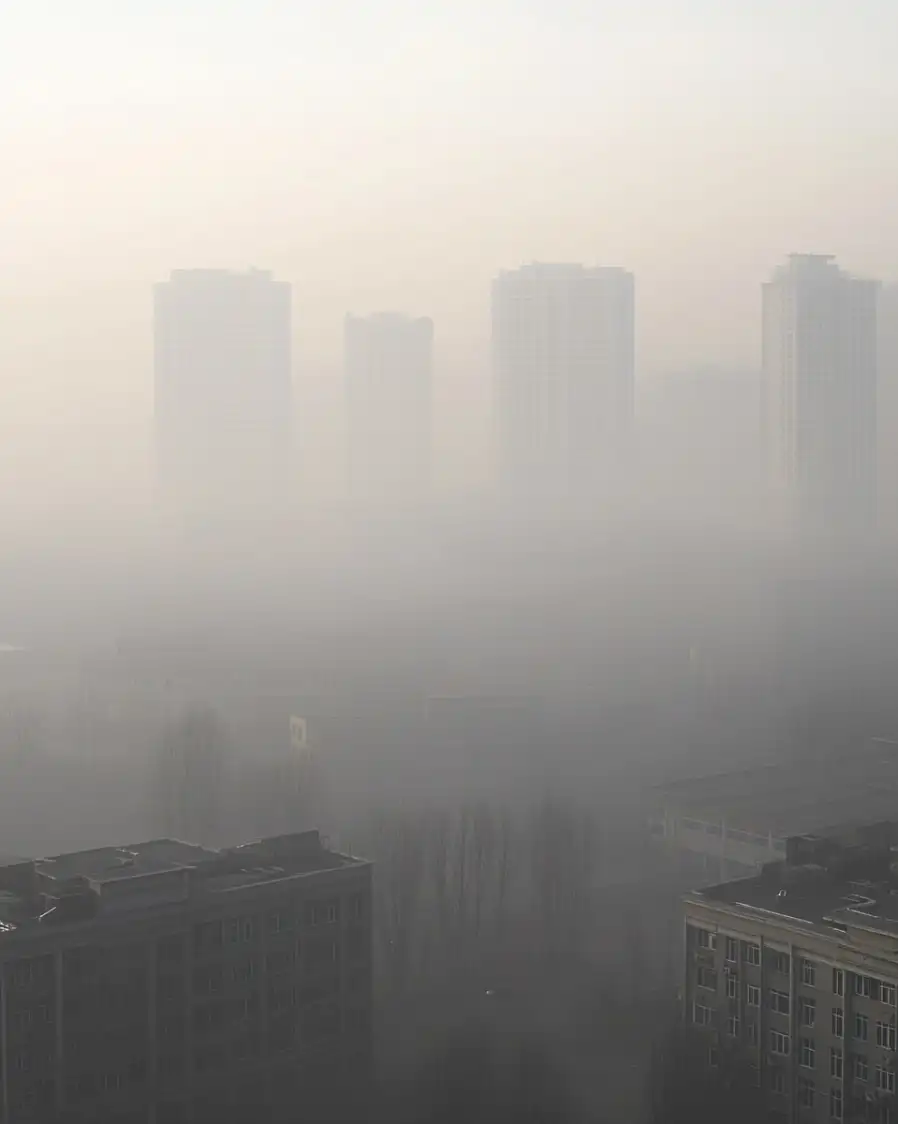

In September 2024, Ukraine experienced a significant deterioration in air quality.
This was caused by several factors, including dust storms coming from the Caspian lowlands, peatland burning and fires in ecosystems.

The most affected regions were Kyiv, Poltava, Dnipropetrovsk, Sumy and Kharkiv oblasts.
Smog and high dust concentrations were associated with dry weather and low winds, which made it difficult for pollutants to disperse.
To minimize the impact of polluted air on the body, the Ministry of Health Protection of Ukraine published several recommendations that remain relevant during such weather conditions:
- Avoid being outdoors unnecessarily.
- Perform regular damp cleaning indoors to reduce the concentration of dust and other harmful substances.
- Close windows and doors to prevent contaminated air from getting inside.
- Use masks or respirators if you must go outside, especially during periods of heavy smog.
- Shower several times a day to wash particles of pollution off your skin.
- Drink plenty of water to maintain water balance and promote the elimination of toxins.

Causes of air pollution in September 2024
- Dust storms: In the last days of September 2024, Ukraine faced powerful dust storms brought by wind flows from the Caspian lowlands. These storms increased the concentration of fine dust particles in the air, which particularly affected the eastern and northern regions of the country.
- Peatland burning and fires in ecosystems: Peatland and forest fires intensified in the regions of Kyiv and Chernihiv oblasts. Peatland burning is one of the main sources of smog and increased content of harmful substances in the atmosphere.
- Windless weather. In September, dry and windless weather was established, which aggravated the situation with accumulation of pollutants in the atmosphere. Smog remained in the air, creating additional risks for public health.

Table 1: Main air pollutants in September 2024
| Polluter | Source | The region is most exposed to |
|---|---|---|
| Fine dust | Dust storms from the Caspian lowlands | Poltava, Kharkiv, Sumy oblasts |
| Nitrogen oxides | Automobile exhausts, industrial plants | Kiev, Dnepropetrovsk region |
| Carbon monoxide | Peatland burning and forest fires | Kiev, Chernihiv oblasts |

Table 2: Recommendations for protection against polluted air
| Recommendation | Description |
|---|---|
| Stay at home | Minimize time spent outdoors |
| Закрывать окна и двери | Use duct tape or damp cloths to seal gaps |
| Drink water | Consume 2-3 liters of water per day, preferably alkaline mineral water |
| Use masks | Wear respirators or face masks when going outdoors |
| Wet cleaning | Daily damp cleaning of the premises |
These measures will help minimize harm from polluted air, especially during periods of high concentrations of harmful particles in the atmosphere.

Interesting facts and research findings
Air pollution is one of the biggest environmental problems of our time.
According to the World Health Organization (WHO), about 7 million people die each year from the effects of polluted air.
Interestingly, the greatest health threat is posed by fine particulate matter (PM2.5), which can penetrate deep into the lungs and even into the bloodstream, causing serious cardiovascular and lung diseases.
Studies have shown that air pollution can negatively affect human cognitive abilities.
For example, Chinese scientists conducted a study of people of different age groups and found that those living in high levels of air pollution performed worse on cognitive tasks such as solving math equations and remembering information.
In addition, recent research in the US has found that long-term exposure to polluted air can also affect mental health, increasing the risk of depression and anxiety.
It is important to note that children, the elderly and people with chronic illnesses are the most susceptible to the effects of air pollution.

Conclusion
With the deterioration of air quality in Ukraine caused by dust storms and fires, it is critical to take steps to protect your health and the health of your loved ones.
Simple actions such as using respirators outdoors, sealing rooms, maintaining water balance and monitoring air quality will help minimize the negative effects of pollution.
Particular attention to these recommendations should be paid to those with respiratory and cardiovascular diseases.
Follow the recommendations of experts and take care of your health!



